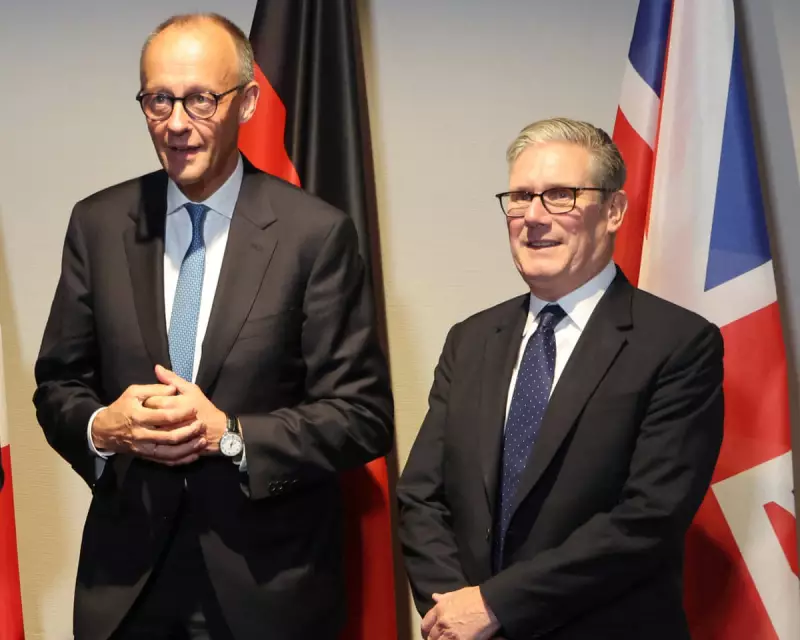
In a significant move to bolster international security, UK Prime Minister Keir Starmer and German opposition leader Friedrich Merz have signed a groundbreaking treaty aimed at dismantling smuggling networks and deepening defence ties between the two nations.
The agreement, finalised in London, marks a new chapter in cross-border collaboration, with both countries pledging to share intelligence and coordinate law enforcement efforts to disrupt organised crime operations exploiting vulnerable migrants.
Key Provisions of the Treaty
- Joint Task Force: Establishment of a specialised unit to investigate and prosecute smuggling gangs operating across UK-German routes
- Enhanced Data Sharing: Real-time exchange of passenger information and criminal records between authorities
- Defence Technology Partnership: Collaborative development of next-generation surveillance systems for border protection
- Training Programmes: Cross-training of police and military personnel in counter-smuggling tactics
Strengthening European Security
The treaty comes amid growing concerns about increasingly sophisticated smuggling operations in the Channel region. "This agreement represents our shared commitment to protecting our borders while upholding humanitarian values," Starmer stated during the signing ceremony.
Merz emphasised the strategic importance of the pact: "By combining our resources and expertise, we can more effectively combat the criminal networks that threaten stability across Europe."
Political Implications
Political analysts suggest the treaty could signal a broader realignment of UK-European relations following years of post-Brexit tensions. The defence cooperation components are particularly noteworthy, potentially paving the way for future joint military exercises and equipment development projects.
Home Office officials estimate the new measures could reduce Channel crossings by up to 40% within the first year of implementation, though human rights groups have called for additional safeguards to protect genuine asylum seekers.





